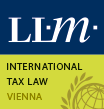Marlies De Ruiter
Born in the Netherlands in 1966. After finalizing her Master’s degree at the Erasmus University in Rotterdam, Marlies started working at the large enterprises division of the tax administration in the Netherlands. In 2000, Marlies transferred to the Ministry of Finance. She was responsible for drafting the transfer pricing policy of the Netherlands and subsequently moved on into senior roles in the international tax policy area. She was in charge of the competent authority function mandated to resolve tax treaty disputes with other countries, the contributions of the Netherlands to the OECD work on tax and the tax treaty negotiations of the Netherlands. In this capacity, she chaired the OECD working group on dispute resolution from 2004-2007 and chaired OECD’s Working Party 6 on Transfer Pricing from 2009-2011. In 2012, Marlies joined the OECD Secretariat, where she was the Head of the Tax Treaty and Transfer Pricing Division and responsible for the work on about half of the BEPS Actions, including Action 14 on Dispute Resolution. In 2016, Marlies joined EY, where she is the Global International Tax Policy Leader.Courses:
Conflict Settlement in Tax Treaty Law
Although tax treaties generally seek to avoid cross-border double taxation by providing a series of rules to allocate tax revenues between the contracting states, the number and magnitude of cases of double taxation connected to disputes on how these allocation rules should be applied continue to grow. This course provides general background regarding the nature of current tax treaty disputes and the practical difficulties encountered in their resolution. It considers the tools currently available for the resolution of such disputes under bilateral tax treaties and other agreements, including the mutual agreement procedure conducted by the competent authorities, advance pricing agreements under bilateral treaties, and the EU instruments to prevent double taxation, including the multilateral convention on arbitration and the directive on dispute resolution mechanism on tax in the EU. The course also discusses the recent OECD and UN consideration of mechanisms to improve dispute resolution, including the broader adoption of mandatory, binding arbitration and the new dispute resolution mechanisms proposed in the context of Pillar One and Pillar Two of the OECD/G20 Inclusive Framework Project on addressing the tax challenges arising from the digitalisation of the economy.
Back to list

